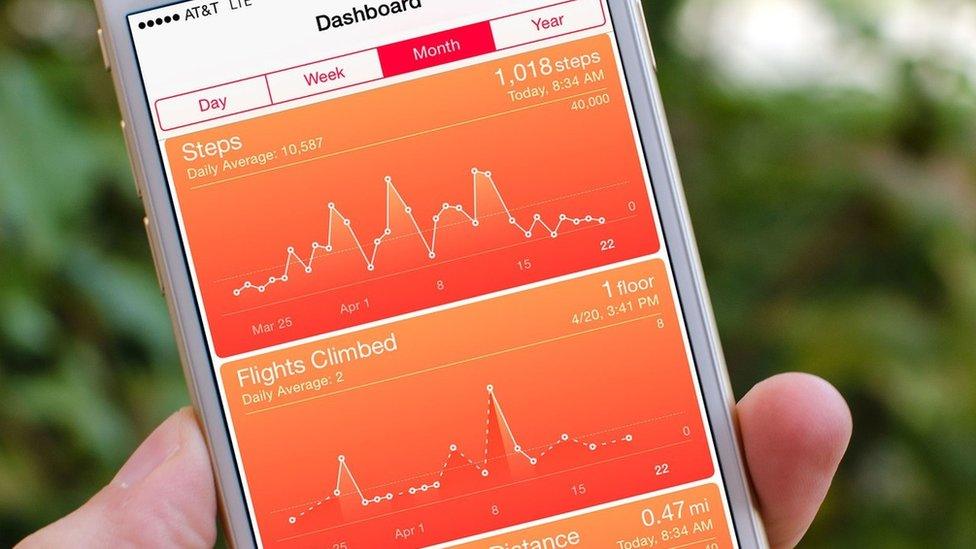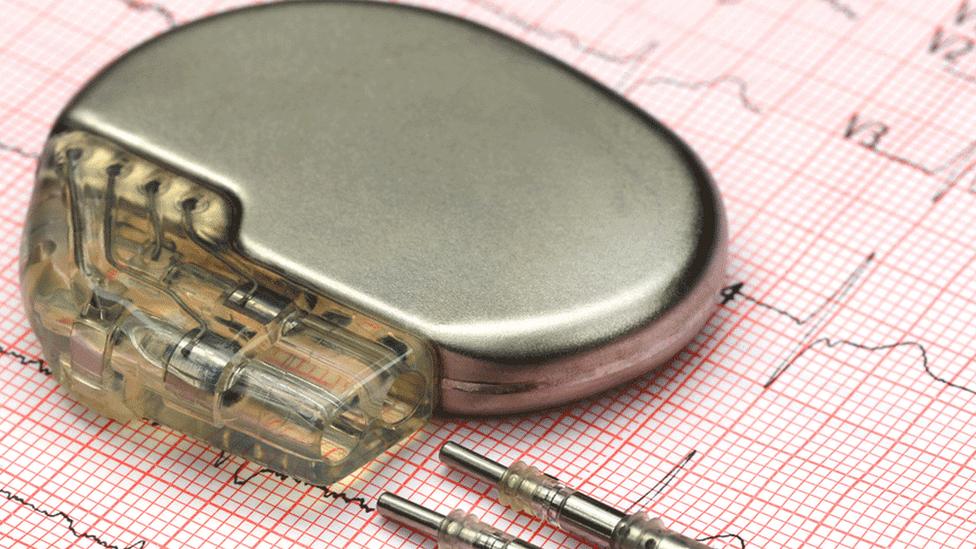Apple health data used in murder trial
- Published

The data shows steps and flights climbed
Health data has provided crucial evidence at a trial in Germany, in which a refugee is accused of rape and murder.
Apple's Health App accurately records steps and has been pre-installed on the iPhone 6S and newer models.
Data suggesting the suspect was climbing stairs could correlate to him dragging his victim down a riverbank and climbing back up, police said.
The accused - Hussein K - has admitted his guilt but disputed some details.
The 19-year-old medical student Maria Ladenburger was murdered in October 2016 and the trial - at the district court in Freiburg - started in September.
Ms Ladenburger was raped and drowned in the River Dresiam.
The suspect - identified by a hair found at the scene of the crime - refused to provide police with the PIN code to his phone so investigating officers turned to an unnamed cyber-forensics firm in Munich, which broke into the device.
The health data app on iPhones records activity - including how many steps are taken, nutrition and sleep patterns as well as various body measurements such as heart rate.
As well as locating Hussein's movements, the phone also suggested periods of more strenuous activity, including two peaks, which the app put down to him "climbing stairs".
An investigator of similar build to the suspect went to the area where the body was found and recreated how the police believe he disposed of the body.
The police officer's movement data on the same app showed him also "climbing stairs".
"For the first time, we correlated health and geo-data," chief of police Peter Egetemaier told the court, according to German paper Die Welt., external
Complicating the trial are attempts to pin down Hussein's real age.
He initially claimed that he was 17 but his father, tracked down to Iran, has disputed this.
Age will play a part in sentencing. The maximum for someone under 18 is 10 years, whereas the adult sentence for such a crime could be up to 30 years.
- Published13 July 2017
